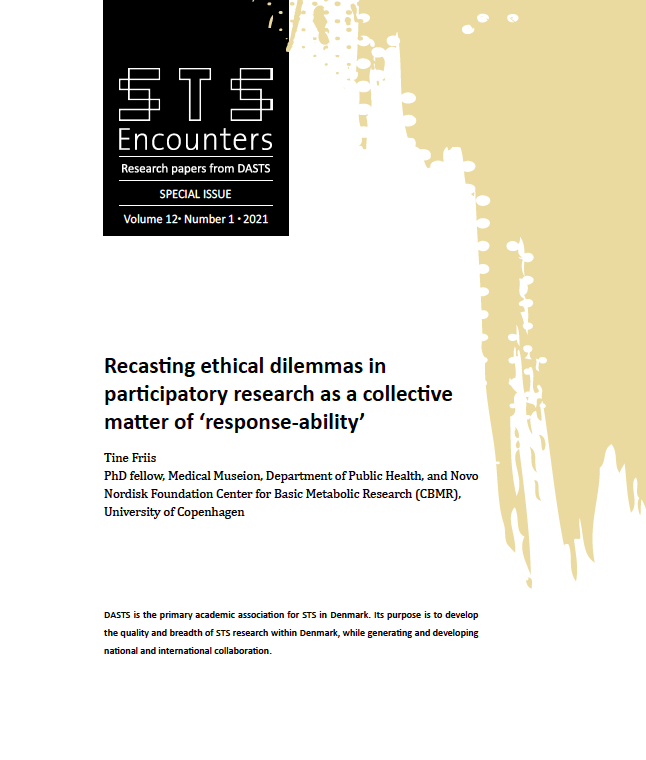Recasting ethical dilemmas in participatory research as a collective matter of ‘response-ability’
DOI:
https://doi.org/10.7146/stse.v12i1.135403Abstract
This article investigates ethical dilemmas in a research practice of collective memory-work that experiments with articulating personal experiences of how the human gut and psyche connect. Memory-work is a group-based participatory research method, in which participants and researcher write down a personal memory in the third person, read the memory aloud and analyze it collectively. Based on memory-work with a group of women living with autoimmune diseases, I analyze how ethical dilemmas arose around new self-realizations in our articulations of ‘gut’ and ‘psyche’, and how the dilemmas brought up issues about the ‘therapeutics’ and ‘matters of care’ of memory-work. I discuss how the dilemmas were configured through objectifying our personal experiences by writing them down, creating unfamiliar care positions in relation to each other and our past and present selves. In dialogue with Donna Haraway’s concept of response-ability and Svend Brinkmann and Steinar Kvale’s notion of ethical fields of uncertainty, I argue that ethical dilemmas demand ongoing attention, rather than a solution. The analysis shows that ethical dilemmas, when discussed among research participants and researcher, can become useful tools for developing capabilities to attune and respond to ethically important moments in experimental practices. Thus, this article empirically recasts ethical dilemmas as a collective concern, and seeks to contribute to the fields of STS and Psychology by discussing researcher and participant positions, our responses and capabilities to act when facing ethical dilemmas, and the place ethics and response-ability have in participatory research practices.

Published
How to Cite
Issue
Section
License

This work is licensed under a Creative Commons Attribution-NonCommercial-ShareAlike 4.0 International License.
Starting with volume 15, articles published in STS Encounters are licensed under Attribution-NonCommercial-ShareAlike 4.0 International (CC BY-NC-SA 4.0). The editorial board may accept other Creative Commons licenses for individual articles, if required by funding bodies e.g. the European Research Council. Previous articles are not licensed under Creative Commons. In these volumes, all rights are reserved to the authors of the articles respectively.




